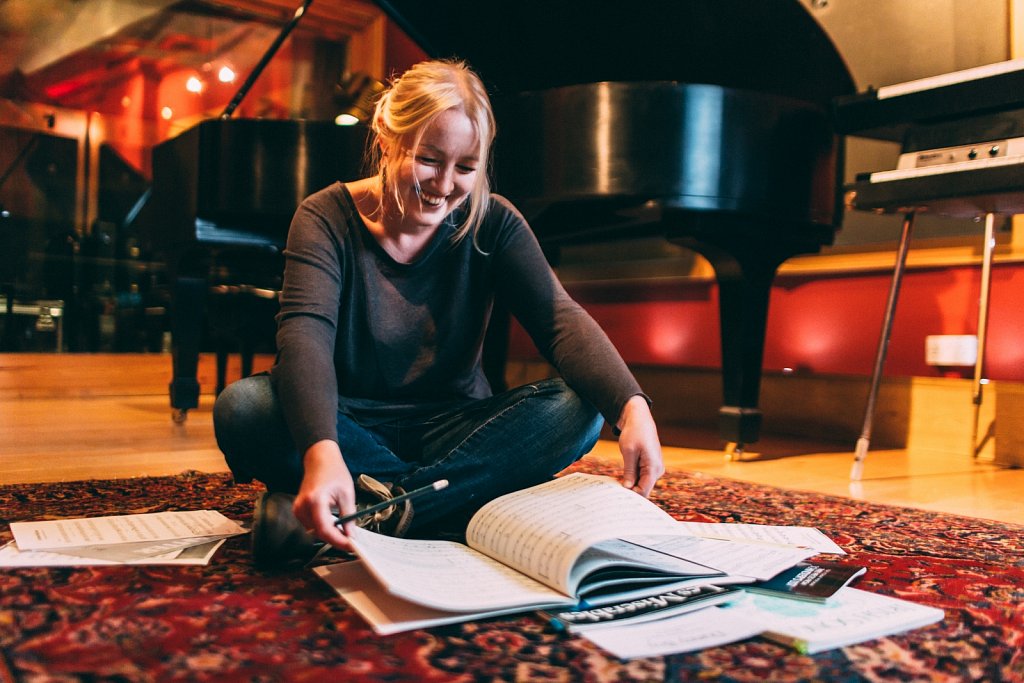

Fortunately, my husband, Steve (also a musician) was able to step in and conduct a few times a year when the choir really needed it.


Like I said, most of the time, I found I was able to direct from the piano just fine, but, there were a few anthems each year that really were better when someone was standing in front conducting. The nice thing is, in the moment, you get to focus solely on the choir and their sound.Īnother idea is to ask someone to guest conduct. I have a friend who does this every week for a choir of about 15.
#Accompanist work pro#
Pro Tip: Short of singing everything a cappella, one option is to record your accompaniments ahead of time (try apps like GarageBand or Music Studio) and then stand in front of the choir to direct on Sunday morning (it's as close as you can get to cloning yourself). Sometimes, the piano is far away from where the choir stands (or behind them). Sometimes, the organ is behind the altar. Pro Tip: Try recording part of your rehearsal and listening to it later or appointing someone you can trust to stand in different places throughout the sanctuary as you rehearse and give you (and the group) feedback. Related post: My Step-By-Step Process for Rehearsing a New Anthem Balanceĭepending on your setup, it may be challenging to hear if the sound is balanced - in terms of the choir’s sound (balance between voice parts) and the choir and the piano or organ ( source). Pro Tip: Rehearse the piece a variety of different ways in rehearsal: each part alone (with piano), parts in combination (with and without piano), all parts (with and without piano), singing on neutral vowel with accompaniment (focusing on breath and phrasing), singing with text with accompaniment. Often, your attention will be divided between the two - sometimes, more focused on the choir, their parts and their sound other times, more focused on your part, fingering, tempo, etc. "When we attempt to multitask, we don’t actually do more than one activity at once, but quickly switch between them." ( source) Unless you know the music really, really well, it's very difficult to listen critically to the choir (breath, vowels, dynamics, phrasing, balance, notes/rhythms) and focus on a more challenging piano accompaniment ( source). Let's start with the challenges (and a few creative solutions!): Challenges Divided attentionīy now, we all know that multitasking isn't all it's made out to be. Tami was kind enough to reply with a few of her thoughts (see her thoughts woven throughout) and together with my experience and the experiences of people I know, and another look at Vern Sanders' article, I wrote out a few of the rewards and challenges of the job. It got me thinking:Īs a director/accompanist, what are the practical challenges of running a rehearsal, directing on Sunday mornings, logistics, etc.? Are there any creative solutions? What are the rewards or benefits of directing from the keyboard? She recently stepped into the role of director/accompanist for the first time and shared some of the joys and challenges so far. Recently, I received an email from a reader - Tami Thompson of Grace United Methodist Church in Hamilton, Ohio. And in a larger church with a larger choir doing more difficult music, I can see how the role of director/accompanist would be more challenging and could in fact limit what the choir is able to do. There are always rewards and challenges with the job - that goes without saying. I found I could direct most things from the piano just fine and I think it helped the choir take more responsibility for their music-making. But, I realize this was a unique situation. A few years ago, I read an article by Vern Sanders of Creator Magazine called "5 Shocking Truths About Director Accompanists."Īt the time, I was a director/accompanist at a small church with a choir of about 20 people.


 0 kommentar(er)
0 kommentar(er)
